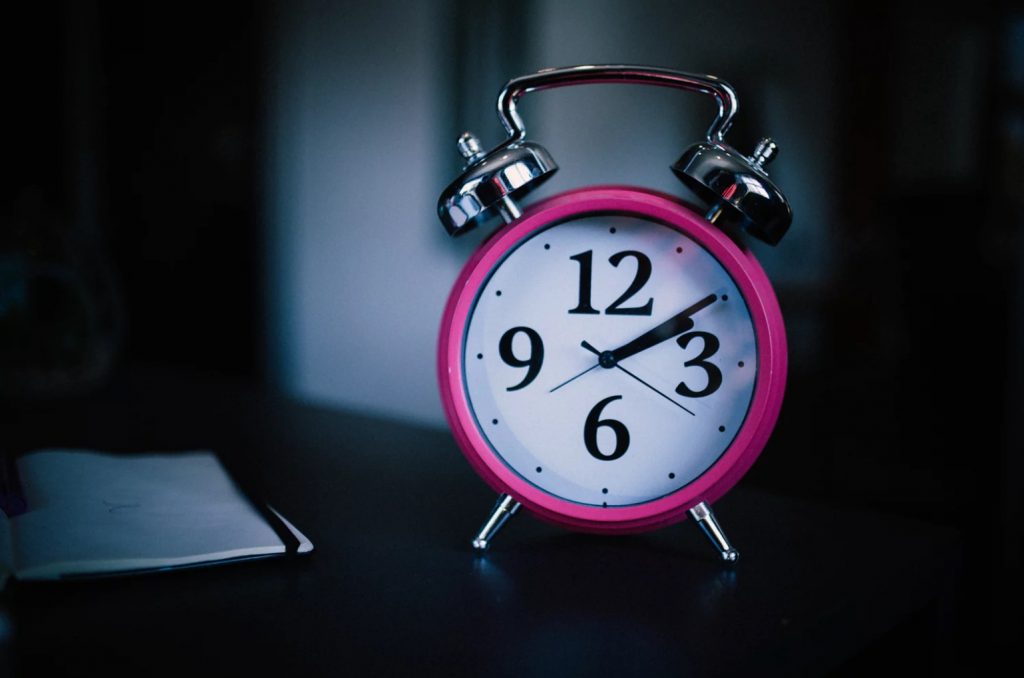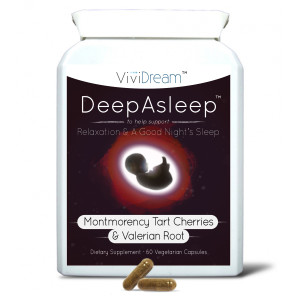
7 Reasons Why Sleeping Less Than 7 Hours Is Unhealthy

You KNOW that you should be sleeping more… but why? It seems like everyone is telling you 8–9 hours of sleep a night is good, but no one knows the true reason. Here’s a list of 7 such reasons.
#1. Poor sleep lowers your immunity.

Are you one of those people who gets the short end of the stick every flu season? Poor sleep may be the culprit.
See, our immune system is designed to protect us from colds, flu, and other ailments, but when it is not functioning properly, it fails to do its job. And sleep deprivation does some weird things to the immune system.
“A lot of studies show that our T-cells go down if we are sleep deprived,” says Diwakar Balachandran, MD, director of the Sleep Center at the University of Texas M.D. Anderson Cancer Center in Houston.
“And inflammatory cytokines go up. (…) This could potentially lead to the greater risk of developing a cold or flu.”
In simpler terms, sleep deprivation lowers the effectiveness of your immune system, which means days upon days of sick leave.
Turns out there’s real merit in recommending a sleep to a sick person!
#2. But poor sleep may also make you overweight (as much as 2lb in under a week!)

Studies have shown that people who sleep less than seven hours a day tend to gain more weight and have a higher risk of becoming obese than those who get 7 hours or more.
This is believed to be because sleep-deprived people have reduced levels of leptin (the chemical that makes you feel full) and increased levels of ghrelin (the hunger-stimulating hormone).
They in turn make you more likely to snack, especially after dinner.
But professor Ken Wright of Colorado Boulder University thinks extra sleep by itself isn’t going to lead to weight loss.
“Problems with weight gain and obesity are much more complex than that. But I think it could help.
If we can incorporate healthy sleep into weight-loss and weight-maintenance programmes our findings suggest it may assist people to obtain a healthier weight.”
Even though further research is needed on this topic, it’s clear that longer and more quality sleep has a lot of benefits in stimulating a healthy lifestyle.
#3. Poor sleep may decrease mental wellbeing.
Taking into concern the fact that even after one restless night, you become highly irritable, moody, and unproductive, imagine what happens when your sleep is chronically poor.
Studies using different methods and populations estimate that 65% to 90% of adult patients with major depression, and about 90% of children with this disorder, experience some kind of sleep problem.
Most patients with depression have insomnia, but about one in five suffer from obstructive sleep apnea?—?a disorder in which breathing difficulties lead to interrupted sleep.
Sleep problems also increase the risk of developing depression.
A study of about 1,000 adults ages 21 to 30 enrolled in a Michigan health maintenance organization found that, compared with normal sleepers, those who reported a history of insomnia during the first interview were four times as likely to develop major depression by the time of a second interview 3 years later.
#4. Poor sleep may also increase blood sugar, thus leading to diabetes.

Any time your blood sugar gets really high, your kidneys try to get rid of it by urinating, so you are likely to spend your nights getting up and going to the bathroom instead of sleeping.
But high blood sugar causes sleep problems for another reason.
Tired people will eat more because they need to get energy elsewhere, and among those foods there are bound to be some with high sugar.
But it works in reverse too. High blood sugar can cause restlessness at night.
So if you haven’t checked your blood sugar levels in a while, do it as soon as possible. It may be the major reason why you’re having trouble with proper sleep.
#5. Poor sleep may increase risk of heart disease.

Out of all the reasons to get a good night’s sleep, protecting your heart might not be mentioned as much.
But maybe it should be. Sleep duration has decreased 1.5 to 2 hours per night per person in the last 50 years.
And long-standing sleep deprivation could be associated with increased heart rate, an increase in blood pressure and higher levels of certain chemicals linked with inflammation, which may put extra strain on your heart.
But researchers caution that the mechanisms behind shortened and prolonged sleep and heart disease aren’t completely understood.
“Lack of sleep doesn’t necessarily cause heart disease,” says Phyllis Zee, MD, PhD, professor of neurology and director of the Sleep Disorders Program at Northwestern University’s Feinberg School of Medicine. “It really increases the risk factors for heart disease.”
Still, it’s a pretty safe bet that your heart, as well as your body, will thank you for not depriving it of sleep.
#6. Poor sleep lowers sex drive.

Men who don’t get enough quality sleep have lower libidos and less of an interest in sex, research at University of Chicago shows.
“Low testosterone levels are associated with reduced wellbeing and vigour, which may also occur as a consequence of sleep loss,” said Prof. Eve Van Cauter, who led the study.
They found that the levels of the hormone are reduced dramatically to levels more akin to someone 15 years older after just one week of sleep deprivation.
The men with lower levels of testosterone also reported a decline in their sense of wellbeing and their mood (which ties into the point #3).
In another study done at the University of Michigan, researchers found that women who, on average, got more sleep reported better genital arousal and vaginal lubrication vs. women with lower average sleep duration.
As many ladies know, vaginal lubrication is a key component to pleasurable, pain-free sex (wetter is definitely better). Just some friendly advice, if you’re constantly missing out on your sleep, invest in some lube.
#7. And it also lowers fertility.

Difficulty conceiving a baby has been claimed as one of the effects of sleep deprivation, in both men and women.
Leptin, mentioned in point #2, highly affects ovulation, and women need adequate sleep for proper leptin production. When leptin production is compromised, menstrual cycles are disrupted.
And testosterone, mentioned in point #6, is crucial for male fertility.
So, by depriving themselves of sleep, men lose testosterone, produce lower sperm count, and ultimately become less fertile than their well-rested peers.
So what can you do?
Look, it’s understandable. You have to be up at 7 a.m. tomorrow. During daytime, your schedule is stock full. In the evening, your family or friends await you.
But leading a healthy life isn’t impossible, even for busy workers.
5 minutes of exercise while nobody is looking, minimising your sugar consumption, and going to bed on time (Netflix CAN wait!) will be more than enough.
To further help you with the bed-on-time part, I recommend DeepAsleep.
It has helped me with leading a productive day, and it can as well help you.
You can find out more about it here, or just click the image!
[TheChamp-FB-Comments]
Sources:
https://www.nhs.uk/Livewell/tiredness-and-fatigue/Pages/lack-of-sleep-health-risks.aspx
https://www.webmd.com/sleep-disorders/features/immune-system-lack-of-sleep#1
https://www.health.harvard.edu/newsletter_article/sleep-and-mental-health
https://www.webmd.com/sleep-disorders/features/diabetes-lack-of-sleep
https://www.webmd.com/sleep-disorders/features/how-sleep-affects-your-heart#1






